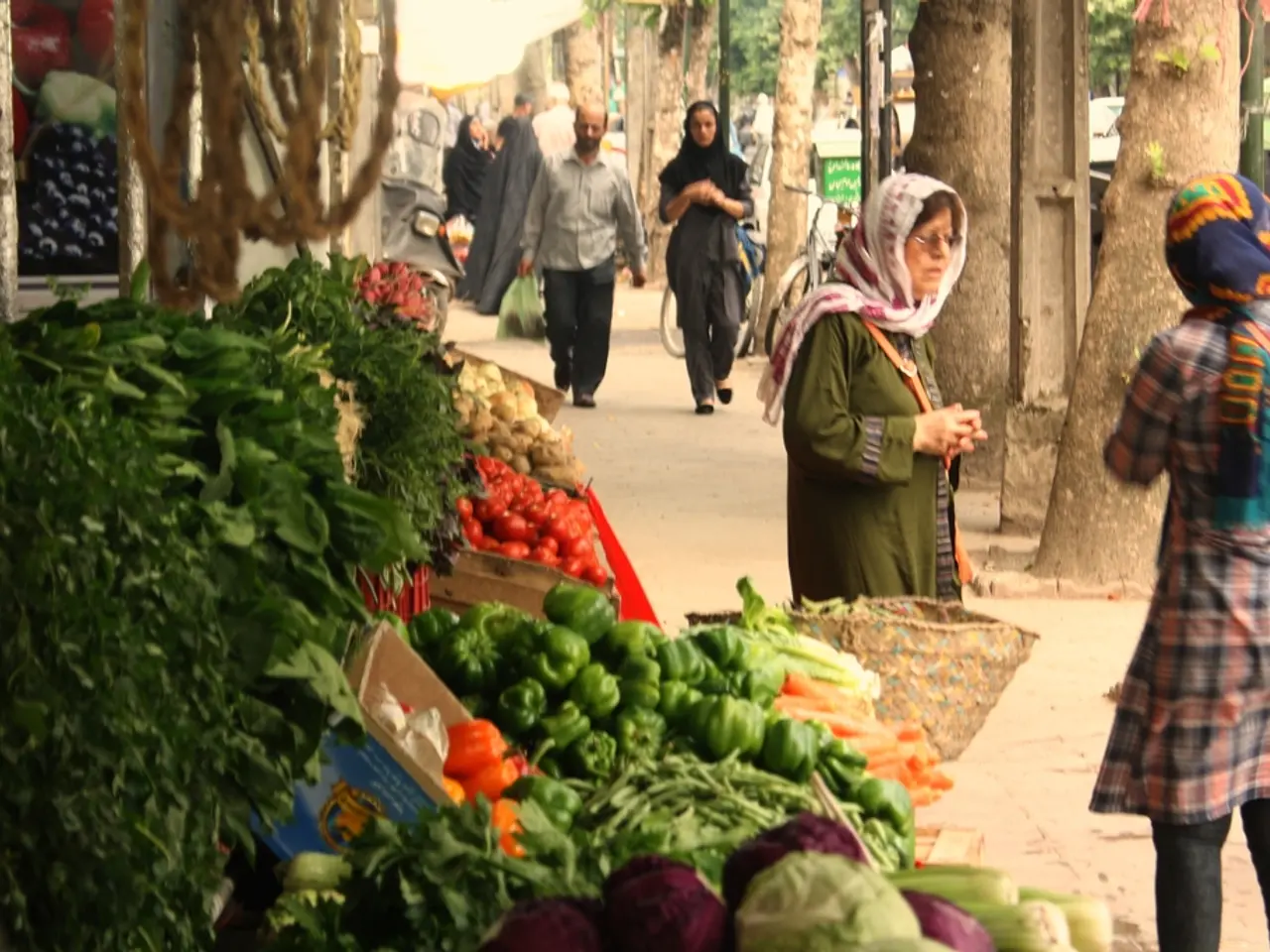Unveiling the Most Lucrative Agricultural Practices in India for the Year 2024
================================================================
In the vibrant agricultural landscape of India, a shift towards profitable and sustainable farming practices is taking shape. Here's a look at the top farming types that are expected to thrive in 2024 and beyond.
First on the list is Horticulture (fruits and vegetables). With high and stable market prices for popular fruits like mango, banana, and guava, and quick returns from vegetables such as tomatoes, onions, and potatoes, horticulture presents a lucrative opportunity. Moreover, expanding export markets, potential for organic and off-season produce demanding premium prices, and the adoption of advanced methods like greenhouse and precision farming to boost yields and profitability make horticulture a promising choice.
Spices, Medicinal & Herbal Crops are another profitable farming type in India, thanks to high global demand and export potential for spices like turmeric and saffron, and medicinal plants such as ashwagandha and aloe vera tapping into the booming wellness market. Organic cultivation raises prices, and value addition through processing enhances profits.
Cash Crops like sugarcane, cotton, and other commodities hold significant value due to large-scale production volumes with established markets. Sugarcane leads in production volume, generating substantial income, while cotton also enjoys export demand.
Nut & Plantation Crops, such as cashew, coffee, and tea, command premium prices globally. These crops are suitable for specific regions, have export orientation, and benefit from growing demand in domestic and international markets.
Exotic Vegetables and Superfoods present an exciting opportunity due to high market prices driven by niche demand and health awareness. These crops allow for multiple cropping cycles through protected cultivation, catering to the increasing consumer preference for nutritious, specialty crops, and offering enhanced profitability from targeted marketing.
Innovations like hydroponic saffron farming are revolutionising some sectors by increasing yield and quality, reducing resource use, enabling cultivation in non-traditional areas, and offering multiple harvests per year—further boosting profitability and sustainability.
Organic farming is also gaining traction in India due to premium market prices and increasing consumer demand for clean, chemical-free produce. This trend supports profitability in various crop segments, including fruits, vegetables, and spices.
Poultry farming, especially broiler and layer farming, has consistently demonstrated profitability, driven by rising demand for chicken meat and eggs. Poultry farming offers quick returns, with broilers maturing in 6-8 weeks.
Aquaculture (fish farming) is another profitable farming type in India, thanks to the growing demand for fish as a source of omega-3 fatty acids and protein. India's extensive water resources and coastline make it an ideal place for raising freshwater and marine fish. The government assists fish farmers with programs and subsidies to support this sector.
Hydroponics, a method that uses nutrient-rich water to grow crops, ensures greater production in fewer areas. This technique allows for year-round farming, regardless of the climate, and reduces water use by up to 90%.
In conclusion, combining traditional high-demand crops with technology-driven innovation and organic methods is shaping the profitability landscape of Indian farming in 2024 and beyond. With the potential for exporting exotic fruits such as kiwis and dragon fruit, as well as opportunities for exporting organic produce to international markets like the US and Europe, the future of Indian agriculture looks bright and profitable.
- In the realm of entrepreneurship, innovative farming methods like hydroponic saffron farming are attracting investments in the finance sector due to their potential for increased yield, reduced resource use, and multiple harvests per year.
- For those considering real-estate investments, understanding the impact of urbanization on agricultural land could be crucial, as the shift towards profitable and sustainable farming practices could influence future housing-market trends.
- In the diversified field of personal-finance, investing in organic farming could offer a unique opportunity, considering the growing demand for clean, chemical-free produce and the premium market prices it commands.
- In terms of wealth management, investing in nut and plantation crops such as cashew, coffee, and tea, which command premium prices globally, could be a strategic move due to their growing demand in both domestic and international markets.
- To manage debt and save for the future, it is essential to budget for multiple cropping cycles of exotic vegetables and superfoods, allowing for quick returns and enhanced profitability from targeted marketing.
- Entrepreneurs interested in the business of farming could find hydroponics (a method that uses nutrient-rich water to grow crops) and precision farming (including greenhouse farming) as profitable sectors, given their ability to boost yields and profitability in various crop segments.




